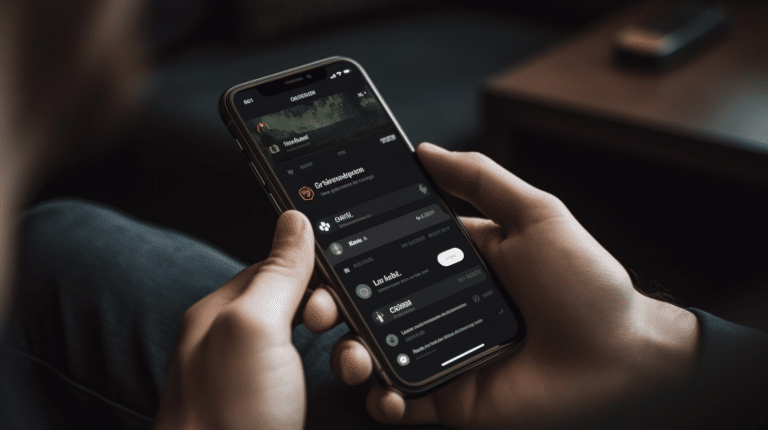Virtual Private Networks (VPNs) have become a popular way to protect one’s online privacy and secure internet connections. While many people associate VPNs with Wi-Fi connections, it’s important to understand that VPNs are not limited to Wi-Fi only and can function with other internet connections as well.
The primary function of a VPN is to encrypt data packets that are transmitted through an internet connection, effectively shielding your online activity from prying eyes. This process occurs regardless of the type of connection you’re using, be it a direct Ethernet connection or a data plan for your device. As such, VPNs can indeed work without Wi-Fi, offering their users the same level of protection and security.
Key Takeaways
- VPNs are not limited to Wi-Fi connections and can work with other internet connections.
- The main function of a VPN is to encrypt data packets for enhanced security.
- VPNs can provide protection and privacy regardless of the type of connection used.
Understanding VPNs
A Virtual Private Network (VPN) is a technology that provides an additional layer of security and privacy when connecting to the internet. It achieves this by creating an encrypted connection between your device and a VPN server. This encrypted connection ensures that your internet activity remains confidential, making it difficult for anyone to intercept or monitor your online activities.
Encryption is the process of converting data into a code to prevent unauthorized access. When using a VPN, your data is encrypted before it leaves your device, ensuring that your privacy is maintained even when connecting to public or unsecured Wi-Fi networks.
This added layer of privacy and security helps to protect sensitive information like passwords and personal data from being intercepted by malicious actors. Furthermore, your real IP address is obscured by the VPN, making it harder for your online activities to be traced back to your location.
VPNs can also serve a purpose beyond security. They allow users to bypass geo-restrictions on content by connecting to servers located in different countries. By doing so, users can access content that would otherwise be unavailable to them due to their physical location.
In summary, VPNs offer a wide range of benefits, from enhancing security to bypassing geographic restrictions on content. By encrypting your internet connection and connecting to a secure VPN server, you can enjoy a safer and more private browsing experience.
How VPNs Work with Wi-Fi
VPNs (Virtual Private Networks) play an essential role in providing security for your internet connection. VPNs work by encrypting your data, which is particularly useful when connecting through Wi-Fi, as it ensures your online activities remain private and secure even on potentially vulnerable public networks. Let’s explore how VPNs function with Wi-Fi and how it compares to using Ethernet connections.
Wi-Fi Versus Ethernet
- Wi-Fi: Wi-Fi provides wireless access to the internet, allowing devices like laptops, smartphones, and tablets to connect without the need for a physical cable. It is convenient and accessible, making it highly popular in public spaces, such as hotels, airports, and coffee shops. However, this convenience comes with a trade-off: Wi-Fi connections can be less secure than their wired counterparts. This is because malicious users can intercept or eavesdrop on data transmitted over the wireless connection, potentially exposing your personal information and online activities.
- Ethernet: An Ethernet connection, on the other hand, connects your device directly to the internet using a physical cable. This type of connection is typically more secure and stable than Wi-Fi, as it is less susceptible to interference and security breaches. However, Ethernet connections may not always be available or convenient, especially for mobile devices or in public areas.
When using a VPN with Wi-Fi, your data still travels through the air via radio waves, but it is encrypted and secure. The VPN establishes a secure “tunnel” between your device and the server, making it difficult for anyone, including your ISP (Internet Service Provider), to intercept or monitor your online activities. This added layer of security is particularly important when connecting to public Wi-Fi networks since they can be targeted by hackers or monitored by unscrupulous network operators.
In contrast, when using a VPN with an Ethernet connection, the secure tunnel is created over the wired connection. Although Ethernet connections are generally more secure than Wi-Fi, the VPN still provides additional protection by encrypting your data and hiding your IP address. This ensures your online activities and personal information remain private and secure, even if the wired connection is compromised.
Whether using Wi-Fi or Ethernet, a VPN can significantly enhance the security of your internet connection, helping to protect your online privacy, safeguard your data, and maintain a secure browsing experience.
VPN Without Wi-Fi Explained
While Wi-Fi is a common way to access the internet, it’s not necessary for a VPN to function. A VPN can work with other types of internet connections, such as via cellular data and Ethernet connections. In this section, we will delve into how a VPN operates in these scenarios.
Utilizing Cellular Data
A VPN works just as well over a cellular data connection as it does with Wi-Fi. When using cellular data, your internet connection is established through your device’s mobile network, which connects to the internet via your Internet Service Provider (ISP). When using a VPN, the app on your device creates an encrypted tunnel between your device and the VPN server, making your internet activity private and secure.
To use a VPN with cellular data, simply connect your device to the mobile network and launch your VPN app. Once connected, the VPN will encrypt your data and route your connection through the chosen VPN server, ensuring your online activities are protected from any prying eyes.
Utilizing Ethernet Connection
An Ethernet connection is another viable alternative for using a VPN without Wi-Fi. Instead of relying on wireless signals, an Ethernet cable physically connects your device to a modem or router, providing a direct and stable internet connection. Similar to using cellular data, a VPN can be set up over an Ethernet connection to provide security and privacy to your internet activities.
To use a VPN with an Ethernet connection, connect your device to the modem or router using an Ethernet cable. Upon establishing an internet connection, launch your VPN app and select the desired VPN server. The encrypted tunnel will be created, and your internet activities will remain secure and private, even without Wi-Fi.
Benefits of VPN Without Wi-Fi
Increased Security
Using a VPN without Wi-Fi, such as with a direct Ethernet connection or a data plan, still offers numerous benefits for users. One of the primary advantages is increased security. A VPN encrypts your data, thereby preventing hackers, government agencies, and other third parties from accessing or intercepting your information. By using a VPN, you can ensure that your personal data remains private and secure, even on non-Wi-Fi connections.
Geo-Restrictions Bypassing
Another benefit of using a VPN without Wi-Fi is the ability to bypass geo-restrictions. Many websites, online services, and streaming platforms implement these restrictions to limit access based on a user’s geographical location. By connecting to a VPN server in a different country, you can effectively change your virtual location and access content that would otherwise be unavailable to you. This feature is particularly useful when you’re traveling abroad and want to access your local content or streaming services.
Improved Privacy
In addition to security and bypassing geo-restrictions, a VPN without Wi-Fi also offers improved privacy for your online activities. Using a VPN helps mask your real IP address and location, making it harder for websites and online services to track you and collect data about your browsing habits. Furthermore, some VPN providers offer military-grade 256-bit encryption to ensure your data remains safe and private. This level of privacy protection can be of great value to users who value their data confidentiality, whether they’re on Wi-Fi or not.
Limitations of VPN Without Wi-Fi
Possibility of Slower Speed
When using a VPN without Wi-Fi, there’s a likelihood of experiencing slower internet speeds. VPNs work by encrypting your data, which can cause a reduction in your connection speed, especially if you’re connected through a cellular network rather than a direct Ethernet connection. As encryption and decryption require processing power, slower devices may perform even worse when using a VPN without Wi-Fi. Additionally, the distance between your device and the VPN server could also influence the speed, as longer distances may result in higher latency and reduced connection quality.
Potential Higher Data Costs
Another limitation of using a VPN without Wi-Fi is the potential increase in data costs. When connected to a mobile data plan, you may consume more data when using a VPN compared to a standard connection. This is because the extra data required for encryption adds to the total data usage. Depending on your cellular plan, this increased data consumption may lead to higher charges or hitting your data cap sooner. To mitigate these costs, you could monitor your data usage closely or opt for a VPN service that offers data compression features. However, these solutions may not be perfect, and some trade-offs could occur, such as lower connection quality or reduced security.
Ensure Your VPN Provides Adequate Security
A VPN (Virtual Private Network) provides an additional layer of security to internet connections by encrypting data between your device and the VPN server. This helps protect your privacy and secures your data from potential hackers and cybercriminals. However, to ensure your VPN is providing you with optimal security, you should consider the following factors:
Firstly, choose a reliable VPN service that has a strong reputation for maintaining privacy and security. Make sure the VPN provider has a no-logs policy, meaning they do not store any information about your online activities. This ensures that your personal data remains private and not accessible to third parties.
Select a VPN service that offers robust encryption methods. Encryption is the process of converting data into a code to prevent unauthorized access, and it is a crucial feature of VPNs. Look for a VPN that provides AES-256 (Advanced Encryption Standard) encryption, which is considered the industry standard for secure data transmission. Additionally, opting for a VPN with certificate authentication helps to safeguard you against the risk of Man-in-The-Middle (MiTM) attacks.
Besides encryption, a secure VPN should offer various security protocols. The most commonly used protocols include OpenVPN, L2TP/IPSec, and IKEv2. OpenVPN is highly recommended as it provides a good balance between security and performance.
Make use of strong passwords for your VPN account. A strong password should be long and have a mixture of uppercase and lowercase letters, numbers, and special characters. This can help prevent unauthorized access to your VPN account.
Ensure that the VPN provider offers reliable firewall protection. A firewall acts as a barrier between your device and the internet, blocking malicious traffic from infiltrating your network. A VPN with built-in firewall support can increase your online security.
Multi-factor authentication is another important security feature you should consider when using a VPN. This adds an extra layer of protection by requiring two or more pieces of evidence to verify your identity. This could include something you know, such as a password, along with something you have, like a physical token, or something you are, such as your fingerprint.
By keeping these factors in mind, you can ensure that your chosen VPN provides adequate security, safeguarding your privacy and personal data while you navigate the online world.
VPN Services Comparison
ExpressVPN
ExpressVPN is a popular choice among users due to its low monthly price and access to over 3,000 servers globally. Known for its fast speeds and high-level encryption (AES 256-bit), ExpressVPN offers a secure and stable connection for both streaming and gaming purposes.
The service is easy to set up and offers a user-friendly interface, making it suitable for beginners and experts alike. Moreover, the provider has a strict no-logging policy, ensuring privacy for user data.
Lightway
As a part of ExpressVPN’s suite, Lightway is a lightweight and high-performance VPN protocol. It strives to provide a faster and more reliable connection than traditional VPN protocols, making it an excellent choice for users prioritizing speed.
Lightway is designed to reduce the latency and increase the connection stability. Furthermore, it offers strong encryption, ensuring that your online activities remain secure and private.
OpenVPN
OpenVPN is an open-source VPN protocol known for its flexibility, security, and widespread adoption across several VPN services. It is highly configurable and supports both UDP and TCP connections, making it suitable for various use cases and network scenarios.
With its strong encryption (AES 256-bit) and extensive platform compatibility, OpenVPN enjoys wide acceptance within the VPN community. Although it is not as lightweight as Lightway, OpenVPN provides reliable and robust performance backed by a large community of developers constantly updating and improving the protocol.
Conclusion
A VPN (Virtual Private Network) is an essential tool for maintaining privacy and security while browsing the internet. In most cases, VPNs are used in conjunction with Wi-Fi connections to provide an encrypted tunnel for data transmission. However, the technology can also function without Wi-Fi, as long as there is an active internet connection, such as through a wired Ethernet connection, mobile data, or other means.
Using a VPN enhances the security of your internet activities by encrypting your data and hiding your IP address, which helps protect your identity and ensures anonymity online. Regardless of the type of internet connection being used, having a VPN in place adds an extra layer of protection for your sensitive information and browsing habits.
While VPNs are often recommended for use on public Wi-Fi networks, they can still provide valuable security and privacy benefits regardless of the type of internet connection being employed. In today’s increasingly digital world, protecting your online privacy and security is crucial to safeguard personal information and maintain peace of mind.
In conclusion, a VPN is a versatile and useful tool that can effectively work without Wi-Fi, as long as there is an available internet connection. Incorporating a VPN into your everyday internet usage, whether on Wi-Fi or other types of connections, will ensure a safer and more private online experience.
Frequently Asked Questions
How does a VPN function on mobile data?
A VPN works on mobile data similarly to how it works on Wi-Fi. It encrypts your internet traffic and routes it through a secure server, ensuring your privacy and security. To use a VPN on mobile data, you’ll need a VPN app, and it should function seamlessly whether you’re connected to Wi-Fi or using cellular data. Direct Ethernet connection or a data-plan can both serve as a VPN substitute internet connection.
Can a VPN provide internet access?
No, a VPN cannot provide internet access on its own. A VPN is a tool to secure and anonymize your existing internet connection, whether it be through Wi-Fi or cellular data. You must already have an internet connection to use a VPN effectively.
Does using a VPN affect data usage?
Yes, using a VPN can affect data usage, but only slightly. Encrypted data sent through a VPN can increase data usage by about 5-10% compared to unencrypted data. Keep this in mind if you have a limited data plan, but the increase is generally minimal and should not cause significant problems for most users.
Do VPNs improve internet speed?
VPNs do not inherently improve internet speed. In fact, because VPNs encrypt and route your data through an intermediary server, you might experience a small decrease in speed. However, in some cases, a VPN can help bypass throttling or congestion on your network, resulting in improved speeds. It’s important to remember that this improvement is not guaranteed and is highly dependent on specific circumstances.
Why might a VPN not work on cellular data?
A VPN might not work on cellular data due to network restrictions, firewall settings, or interference from your mobile carrier. Some carriers may block or limit VPN usage, which can result in connection problems. Additionally, weak cellular signals or network congestion could contribute to VPN connection issues. It’s essential to check your carrier’s policies and troubleshoot any potential network issues when experiencing problems with a VPN on cellular data.
How can I use a VPN without Wi-Fi?
To use a VPN without Wi-Fi, you can simply connect to the internet using an alternative method, like a direct Ethernet connection or a cellular data plan. Once you have an internet connection, you can activate your VPN, which will function in the same way as it would on Wi-Fi, providing you with a secure and private browsing experience.






